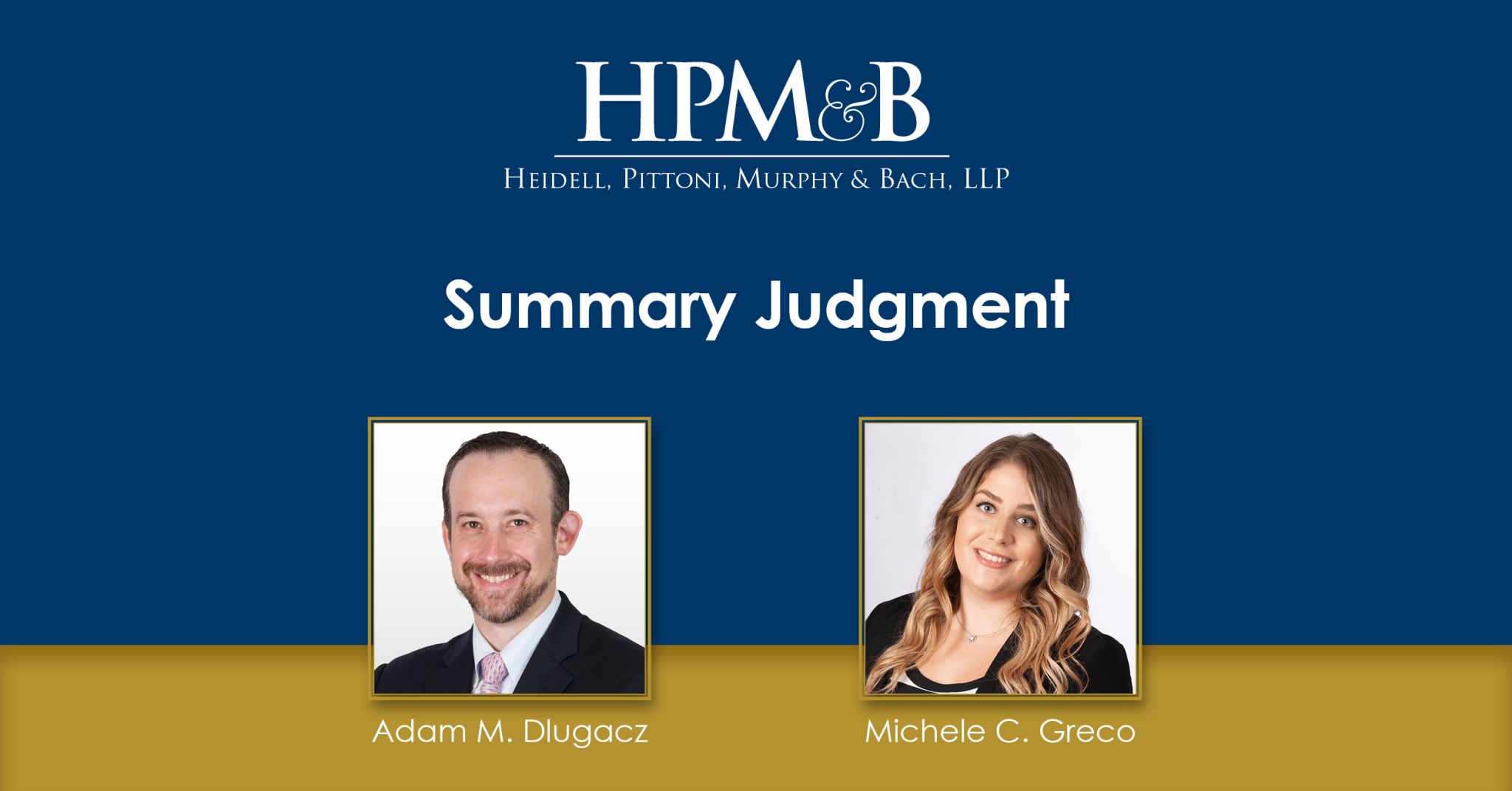Summary Judgement
HPM&B recently obtained summary judgment for our clients, a major New York hospital network and neurosurgeon in a medical malpractice case. Plaintiff alleged that the defendants recommended and performed a contraindicated posterior spinal fusion and decompression surgery. Plaintiff claimed surgery was negligently performed, and that the plaintiff’s spinal deformities should have been managed non-surgically.
The defense moved for summary judgment with the support of a board-certified neurosurgery expert. We established that the care and treatment rendered to the plaintiff was at all times appropriate and consistent with the standard of care. Defendants’ expert demonstrated that surgery was indicated to treat plaintiff’s severe spinal deformity, that informed consent was appropriately obtained, and that the surgery was performed appropriately. Defense also argued that the surgery was successful because it prevented the progression to paraplegia and that plaintiff’s current complaints were part and parcel of the expected post-operative course.
Plaintiff opposed the motion with two experts specializing in neurosurgery and radiology. Plaintiff’s experts claimed that the surgery was not indicated, that informed consent was not properly obtained and that the plaintiff’s injuries were due to a surgical complication. Plaintiff raised a new theory in opposition and plaintiff’s experts’ opinions ignored facts from the records and deposition testimony. These deficiencies were pointed out in HPM&B’s Reply. The Court dismissed the case in its entirety. The Court held that defendants met their prima facie burden of entitlement to summary judgment as a matter of law on plaintiff’s medical malpractice and informed consent causes of action through the opinions of their expert, the records, and deposition testimony. In opposition, plaintiff’s experts’ opinions were conclusory, speculative, and unsupported by the records, and therefore, insufficient to raise a triable issue of fact.
